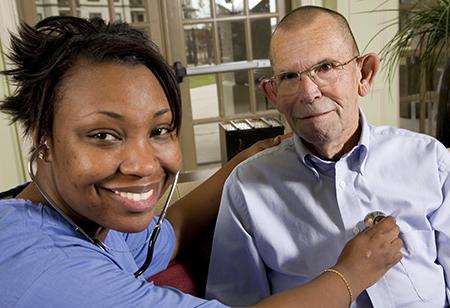Imagine this: You're one of the 6.2 million Americans who have heart failure. You’re used to trips to the hospital, a lower quality of life and an increased risk of death.
Now consider this scenario: You see a doctor who non-surgically implants a wireless mini-device system into your heart. That system monitors pulmonary artery pressure and transmits those readings every day to your doctor. Then, your doctor sees an increase in that pressure (this often happens before weight and blood pressure changes, which are often used as indirect measures of worsening heart failure) and contacts you to devise a plan.
For some patients at HonorHealth John C. Lincoln Medical Center, this second scenario is a reality. The system is an FDA-approved heart failure monitoring device that has been proven to significantly reduce hospital admissions when used by physicians to manage heart failure. The sensor is designed to last your whole life and doesn't even require batteries. You won't even feel it when it's conducting readings.
"We're already seeing reduced hospital readmissions due to heart failure among patients who have the device," said Mark Seifert, MD, a cardiologist with HonorHealth. "This is a benefit to the patient, community and the hospital – heart failure costs the nation an estimated $32 billion per year."
Dr. Seifert notes that the patient cohort at John C. Lincoln Medical Center experienced a 30% reduction in heart failure admissions after having the system implanted.
Jill Berger, a 66-year-old Peoria resident, is thankful to have the device. "I'm feeling great, and have great peace of mind about my health with this system in place," she said.

Care that’s made with you in mind
If you need heart care, we’ve got you covered. Whether you live in the metro Phoenix area or you’re looking to travel to HonorHealth from another part of the state or country, you’ll receive in-depth care designed with your convenience in mind.
Request an appointment with a heart and vascular specialist: 623-580-5800.